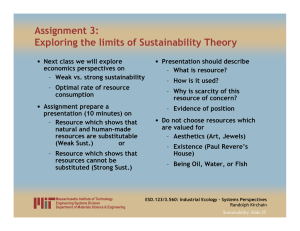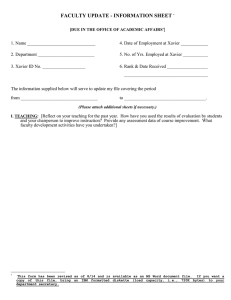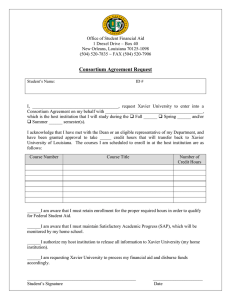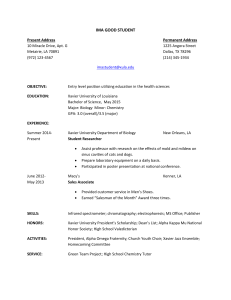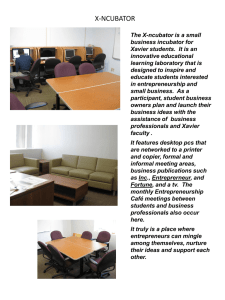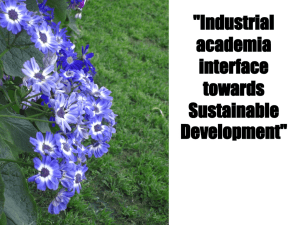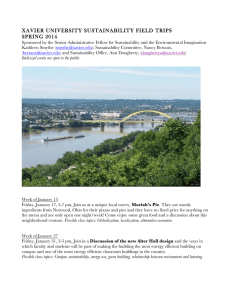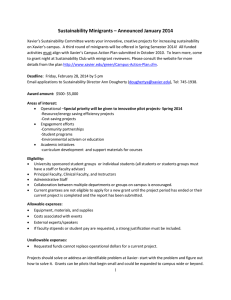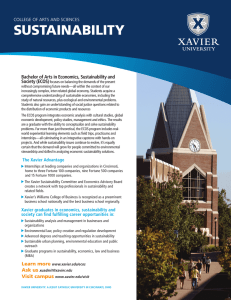Sustainability Xavier Degrees in UNDECIDED ON YOUR MAJOR?
advertisement
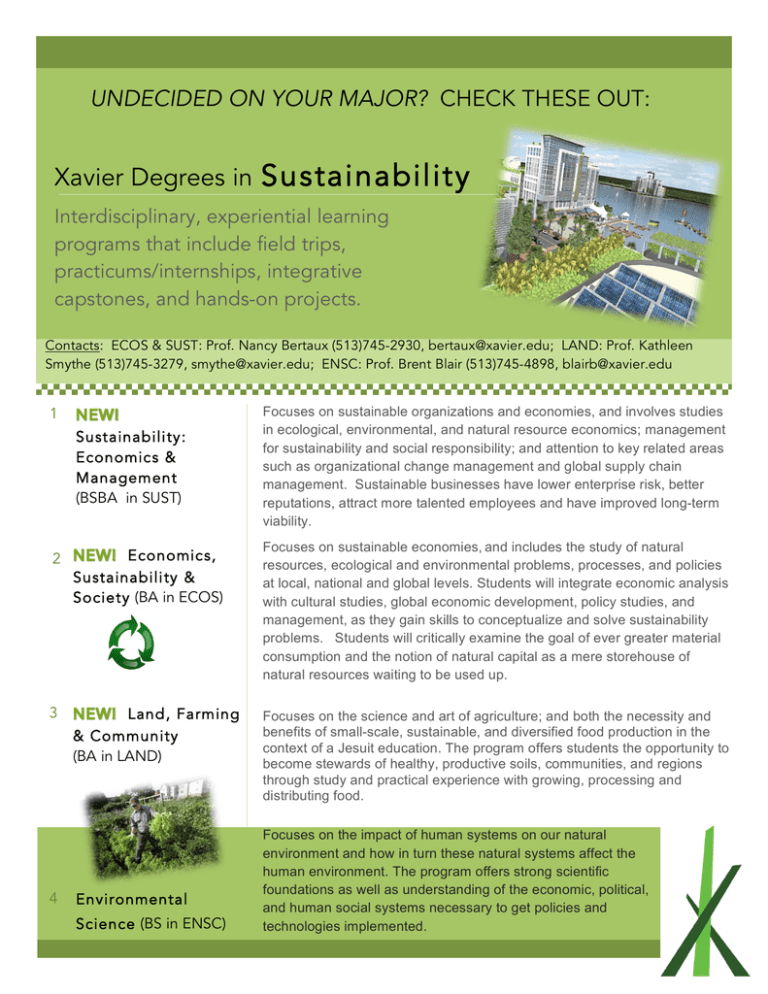
UNDECIDED ON YOUR MAJOR? CHECK THESE OUT: Xavier Degrees in Sustainability Interdisciplinary, experiential learning programs that include field trips, practicums/internships, integrative capstones, and hands-on projects. Contacts: ECOS & SUST: Prof. Nancy Bertaux (513)745-2930, bertaux@xavier.edu; LAND: Prof. Kathleen Smythe (513)745-3279, smythe@xavier.edu; ENSC: Prof. Brent Blair (513)745-4898, blairb@xavier.edu 1 Sustainability: Economics & Management (BSBA in SUST) Focuses on sustainable organizations and economies, and involves studies in ecological, environmental, and natural resource economics; management for sustainability and social responsibility; and attention to key related areas such as organizational change management and global supply chain management. Sustainable businesses have lower enterprise risk, better reputations, attract more talented employees and have improved long-term viability. 2 Economics, Sustainabili ty & Society (BA in ECOS) Focuses on sustainable economies, and includes the study of natural resources, ecological and environmental problems, processes, and policies at local, national and global levels. Students will integrate economic analysis with cultural studies, global economic development, policy studies, and management, as they gain skills to conceptualize and solve sustainability problems. Students will critically examine the goal of ever greater material consumption and the notion of natural capital as a mere storehouse of natural resources waiting to be used up. 3 Land, Farming & Community (BA in LAND) Focuses on the science and art of agriculture; and both the necessity and benefits of small-scale, sustainable, and diversified food production in the context of a Jesuit education. The program offers students the opportunity to become stewards of healthy, productive soils, communities, and regions through study and practical experience with growing, processing and distributing food. 4 Environmental Science (BS in ENSC) Focuses on the impact of human systems on our natural environment and how in turn these natural systems affect the human environment. The program offers strong scientific foundations as well as understanding of the economic, political, and human social systems necessary to get policies and technologies implemented.
